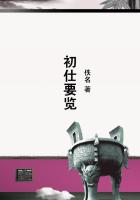Buch I, Kap XXIII, 2) [English edition: Ch. XXV, 2. -- Ed. ] is characteristic above all of the capitalist mode of production. The material forms of existence of constant capital, the means of production, do not however consist only of such instruments of labour but also of materials of labour in various stages of processing, and of auxiliary materials. With the enlargement of the scale of production and the increase in the productive power of labour through co-operation, division of labour, machinery, etc., grows the quantity of raw materials, auxiliary materials, etc., entering into the daily process of reproduction. These elements must be ready at hand in the place of production. The volume of this supply existing in the form of productive capital increases therefore absolutely, in order that the process may keep going -- apart from the fact whether this supply can be renewed daily or only at fixed intervals -- there must always be a greater accumulation of ready raw material, etc., at the place of production than is used up, say, daily or weekly. The continuity of the process requires that the presence of its conditions should not be jeopardised by possible interruptions when making purchases daily, nor depend on whether the product is sold daily or weekly, and hence is reconvertible into its elements of production only irregularly. But it is evident that productive capital may be latent or form a supply in quite different proportions. There is for instance a great difference whether the spinning-mill owner must have on hand a supply of cotton or coal for three months or for one. Patently this supply, while increasing absolutely, may decrease relatively.
This depends on various conditions, all of which practically amount to a demand for greater rapidity, regularity, and reliability in furnishing the necessary amount of raw material, so that no interruption will ever occur. The less these conditions are complied with, hence the less rapid, regular and reliable the supplies, the greater must be the latent part of the productive capital, that is to say, the supply of raw material, etc., in the hands of the producer waiting to be worked up. These conditions are inversely proportional to the degree of development of capitalist production, and hence of the productive power of social labour. The same applies therefore to the supply in this form.
However that which appears here as a decrease of the supply (for instance, in Lalor) is in part merely a decrease of the supply in the form of commodity-capital, or of the commodity-supply proper; it is consequently only a change of form of the same supply. If for instance the quantity of coal daily produced in a certain country, and therefore the scale and energy of operation of the coal industry, are great, the spinner does not need a large store of coal in order to ensure the continuity of his production.
The steady and certain renewal of his coal supply makes this unnecessary.
In the second place the rapidity with which the product of one process may be transferred as means of production to another process depends on the development of the transport and communication facilities. The cheapness of transportation is of great importance in this question. The continually renewed transport of coal from the mine to the spinning-mill for instance would be more expensive than the storing up of a larger supply of coal for a longer time when the price of transportation is relatively cheaper.
These two circumstances examined so far arise from the process of production itself. In the third place the development of the credit-system also exerts an influence. The less the spinner is dependent on the direct sale of his yarn for the renewal of his supply of cotton, coal, etc. -- and this direct dependence will be the smaller, the more developed the credit-system is -- the smaller relatively these supplies can be and yet ensure a continuous production of yarn on a given scale, a production independent of the hazards of the sale of yarn. In the fourth place, however, many raw materials, semi-finished goods, etc., require long periods of time for their production.
This applies especially to all raw materials furnished by agriculture.
If no interruption of the process of production is to take place, a certain amount of raw materials must be on hand for the entire period in which no new products can take the place of the old. If this supply decreases in the hands of the industrial capitalist, it proves merely that it increases in the hands of the merchant in the form of commodity- supply. The development of transportation for instance makes it possible rapidly to ship the cotton lying, say, in Liverpool's import warehouses to Manchester, so that the manufacturer can renew his supply in comparatively small portions, as and when needed. But in that case the cotton remains in so much larger quantities as commodity-supply in the hands of the Liverpool merchants. It is therefore merely a change in the form of the supply, and this Lalor and others overlooked.
And if you consider the social capital, the same quantity of products exists in either case in the form of supply. The quantity required for a single country during the period of, say, one year decreases as transportation improves. If a large number of sailing vessels and steamers ply between America and England, England's opportunities to renew its cotton supply are increased while the average quantity to be held in storage in England decreases. The same effect is produced by the development of the world market and the consequent multiplication of the sources of supply of the same merchandise. The article is supplied piecemeal from various countries and at various intervals.















